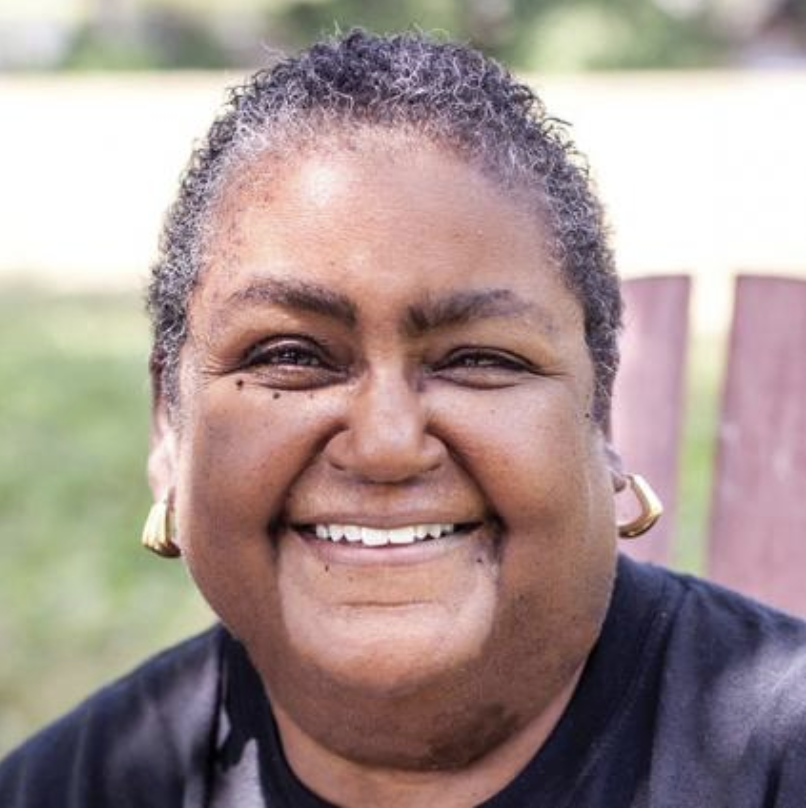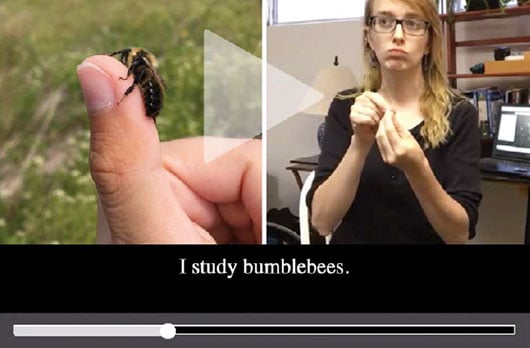TERC Blog
Unifying My Identities—Reflections from an REU Student
What is the REU?
Research Experience for Undergraduates (REU) interns join TERC projects for the summer, embarking on STEM education research projects with a focus on fostering equity in STEM and STEM education while promoting transformative social justice. They each have the opportunity to work closely with TERC researchers and their project teams, receiving mentorship and guidance throughout their journey.
As part of their experience, their mentors help them receive training on essential education research methodologies, engage with critical issues and perspectives of social justice in STEM and education, and gain professional development to support their future pathways to graduate school, research careers, and other diverse career options.
 As an enrolled member of the Choctaw Nation, I experienced unanticipated culture shock during my transition into academia as an undergraduate student double majoring in Environmental Science and Political Science at the University of Science and Arts of Oklahoma. Despite being immersed in Native ways of being, I had doubts about my real connection with my culture. I thought that the perspectives carried by my community were universal and self-evident. However, at my university, where I was surrounded by people who did not reflect the same ideals, I learned that some of my values were uniquely connected to my culture. I specifically saw this in classes where we discussed the ethics of environmentalism and environmental justice. Many of my peers expressed perspectives which I felt were continuing ideals of colonialism and I struggled to express my own voice among the different perspectives.
As an enrolled member of the Choctaw Nation, I experienced unanticipated culture shock during my transition into academia as an undergraduate student double majoring in Environmental Science and Political Science at the University of Science and Arts of Oklahoma. Despite being immersed in Native ways of being, I had doubts about my real connection with my culture. I thought that the perspectives carried by my community were universal and self-evident. However, at my university, where I was surrounded by people who did not reflect the same ideals, I learned that some of my values were uniquely connected to my culture. I specifically saw this in classes where we discussed the ethics of environmentalism and environmental justice. Many of my peers expressed perspectives which I felt were continuing ideals of colonialism and I struggled to express my own voice among the different perspectives.
Although I eventually found a steady foothold at my institution, I still avoided exploring why I continued to feel a lack of connection between my Native identity and my majors. I learned how to conduct research but had little experience approaching research with cultural nuance. At the end of the 2022 fall term, my advisor recommended that I apply to the TERC Research Experience for Undergraduates (REU) program. He noted how important this experience would be for my professional development and how it would allow me to examine the ways in which other Native individuals navigate STEM and higher education.
 Because of my lack of experience in social science research, I assumed that I would be automatically rejected; I also continued to doubt the strength of my identity and the chance that I would feel any connection to those who truly were connected to their culture. But I hesitantly began the application process. To my surprise, I was accepted, and it immediately felt right to pursue this experience. I did not anticipate the way the REU would provide me with a deeper understanding of research and analysis as well as a reimagining of the way I engage with both my cultural and STEM identities.
Because of my lack of experience in social science research, I assumed that I would be automatically rejected; I also continued to doubt the strength of my identity and the chance that I would feel any connection to those who truly were connected to their culture. But I hesitantly began the application process. To my surprise, I was accepted, and it immediately felt right to pursue this experience. I did not anticipate the way the REU would provide me with a deeper understanding of research and analysis as well as a reimagining of the way I engage with both my cultural and STEM identities.
I applied for a project called Native STEM Portraits (NSP), a longitudinal study that investigates the support and barriers experienced by Native individuals in STEM higher education and professions. The project utilizes a mixed-methods approach, exploring responses from surveys and photo elicitation (PE) interviews. Aspects of this project were way out of my scope of comfort, as my previous academic research experiences were rooted in the traditional Western norms of science. My work drew on the data gathered by the NSP study and utilized Kirkness and Barnhardt’s (1991) theoretical framework of the 4R’s (respect, relevance, reciprocity, and responsibility), along with Brayboy’s (2005) TribalCrit, to complete a full analysis. Specifically, I decided to explore how Native American undergraduates in life and earth sciences view their educational experiences and institutions, using descriptive analysis of the survey data and thematic analysis of the PE interview data.
 Reflecting on this internship, I can see the changes in my self-perception as a Native scientist with the passing of each week. At first, I navigated quantitative data that felt familiar. This allowed me to start out with confidence, as I knew that I had the ability to give an appropriate and thorough analysis. As I built confidence in my research, I began to read through Native literature and theoretical frameworks to better understand the de-colonized approach to analysis. I began to see my identity reflected in the literature. Finally, some of the isolation I had experienced in my STEM education was being communicated by others in the field of science education. It affirmed for me that my identity was an evolving piece of my academic journey, in much the same way it seemed to be for these authors.
Reflecting on this internship, I can see the changes in my self-perception as a Native scientist with the passing of each week. At first, I navigated quantitative data that felt familiar. This allowed me to start out with confidence, as I knew that I had the ability to give an appropriate and thorough analysis. As I built confidence in my research, I began to read through Native literature and theoretical frameworks to better understand the de-colonized approach to analysis. I began to see my identity reflected in the literature. Finally, some of the isolation I had experienced in my STEM education was being communicated by others in the field of science education. It affirmed for me that my identity was an evolving piece of my academic journey, in much the same way it seemed to be for these authors.
After wrapping up my survey data, I moved onto the qualitative data analysis. Doing a well-rounded analysis of interview data was beyond any previous research experience I’d had. I decided to jump into reading the PE interviews, putting my research questions on the back burner, so that I could humanize the participants and view their full stories as unique testaments to themselves and their identities. Reading through the interviews showed me the manifestation of a Native identity in academia in a way which reflected on my experience. Following the initial read-through, I applied my newly acquired qualitative research training and coded the interviews to reflect their journeys and stories.
 As a result of the NSP REU summer, I am more comfortable expressing my cultural values as part of my academic journey. NSP has given me permission — which I did not realize that I felt that I had needed — to take my Native identity into my education and allow it to influence my ways of knowing and being. Additionally, NSP and the REU summer has provided me with extensive experience by funding me to present at two national conferences, AISES and SEEDS, which allowed me to be immersed in the field of academia and become more comfortable in my identity and understanding.
As a result of the NSP REU summer, I am more comfortable expressing my cultural values as part of my academic journey. NSP has given me permission — which I did not realize that I felt that I had needed — to take my Native identity into my education and allow it to influence my ways of knowing and being. Additionally, NSP and the REU summer has provided me with extensive experience by funding me to present at two national conferences, AISES and SEEDS, which allowed me to be immersed in the field of academia and become more comfortable in my identity and understanding.

Thanks
I am exceedingly grateful for the mentorship I received at TERC. Dr. Mia Ong, Dr. Nuria Jaumot-Pascual, Dr. Lisette Torres-Gerald, Dr. Matthew Madison, Dr. Selay Zor, and Dr. Tiffany Smith offered me extensive support. They addressed each question I had and gave me wonderful articles to continue exploring. Christina Silva provided me with unique near-peer mentorship that has helped me develop professionally. Dr. Stephen Alkins and Bengisu Onal helped me explore how to take my research beyond this program. Each person mentioned above pushed me further than I thought I was capable of going and made sure that I had the support to produce the best research product. This work was funded by the National Science Foundation through Grants 2000619 and 2150364. Any opinions, findings, and conclusions or recommendations expressed in this material are the author’s and do not necessarily reflect the views of the National Science Foundation.
References
Brayboy, B. M. J. (2005). Toward a tribal critical race theory in education. The urban review, 37, 425–446.
Kirkness, V. J., & Barnhardt, R. (1991). First Nations and higher education: The four R’s—Respect, relevance, reciprocity, responsibility. Journal of American Indian Education, 30(3), 1–15.

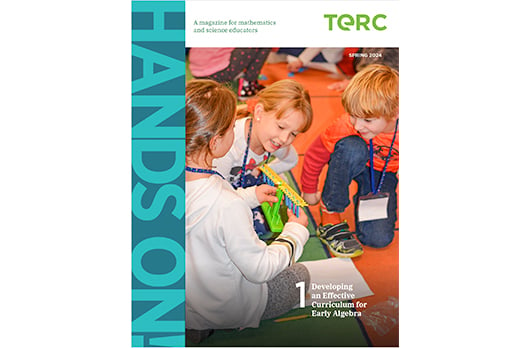




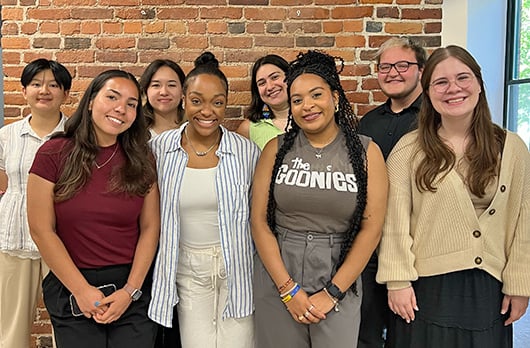
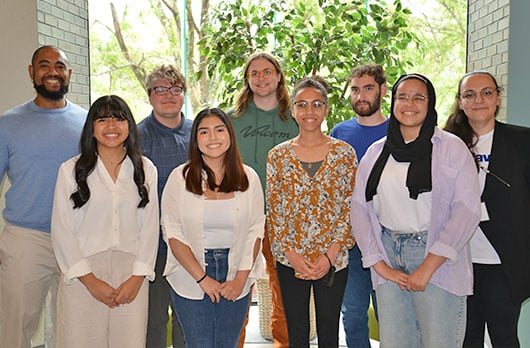
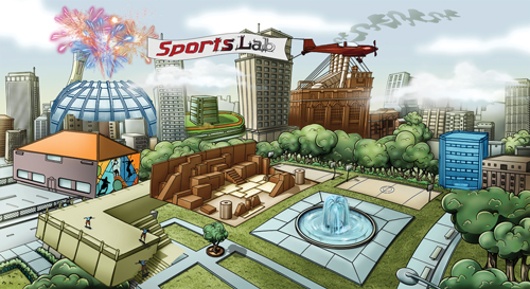
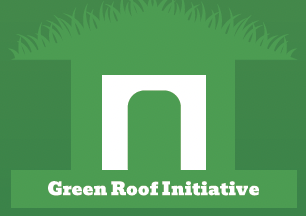
.png)
